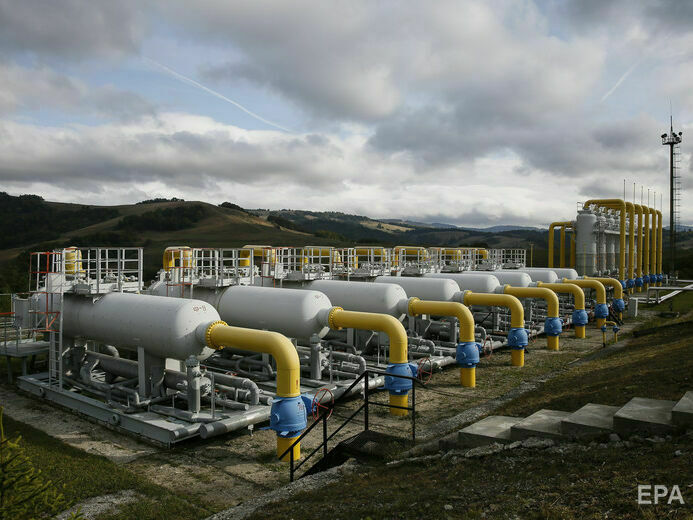The journalist asked Makogon what the worst-case scenario for the transit of Russian gas to the EU through the territory of Ukraine is threatening the GTS.
"Are we going to cut it up for scrap?" – clarified a member of the media.
The CEO of OGTSU admitted that in case of Russia's refusal from gas transit Ukraine will have "considerable excess capacity", but no one plans to cut anything.
"That's not true. We have a very large gas market of our own. Ukraine consumes 30 billion cubic meters per year. Independently (our Ukrainian companies) we produce 20 billion cubic meters. We import another 10 billion cubic meters from abroad. That is why there is no need to cut anything. We will work, supply our consumers, population and industry with gas because it is very important for our economy", – replied Makogon.
He reminded that Ukrainian GTS was built as the only route for delivery of gas from Russia to Europe.
"The total capacity of the Ukrainian GTS is 146 billion cubic meters – that's almost three Nord Streams – 2. But, unfortunately, transit is only 40 billion m³. This means that 100 billion m³ of transit capacity is practically not used. And if the Russian Federation stops the transit of gas through Ukraine after 2024, we will have to optimize our system in order not to spend money on the infrastructure which will not be used", said Makogon. – We are not planning to cut anything, it will be a planned process of optimization of the system, coordinated, calculated".
Context
On December 30, 2019, Naftogaz and Gazprom signed a new five-year gas transit contract. According to it, the minimum guaranteed amount of gas pumped through the territory of Ukraine in 2020 was to be 65 billion m³ and 40 billion m³ in the next four years. The contract was concluded on the condition "pump or pay", that is, even if Gazprom transports less gas, it still has to pay the contracted volume. Officially, the parties have not disclosed the transit tariff. According to RBC, the cost of pumping Russian gas through the Ukrainian GTS is $31.72 per 1,000 m³, including all taxes and fees.
In 2020, 55.8 billion cubic meters of Russian gas were transported through Ukraine to the European Union – the lowest figure in seven years.
"Gazprom is gradually cutting gas transit through Ukraine. In October 2021, the company "Operator GTS Ukraine" said that, although the contract assumes the daily transportation of 109 million m³, " is actually transported much less – 85.9 million m³ per day."
The construction of Nord Stream 2, which is to link Russia and Germany through the Baltic Sea bypassing Ukraine, has been fully completed. On October 4, 2021, Gazprom announced that it had begun to fill the first line of the pipeline with gas.
Germany's Federal Network Agency is considering an application by Nord Stream 2 AG, which is 100 percent owned by Russia's Gazprom, for certification as an independent operator of the Nord Stream 2 transmission system. Its decision will be sent to the European Commission for review.
Amos Hochstein, energy security adviser at the U.S. State Department, believes that German and European Commission approval of Nord Stream 2 could last until March 2022.


 +8 Kyiv
+8 Kyiv


